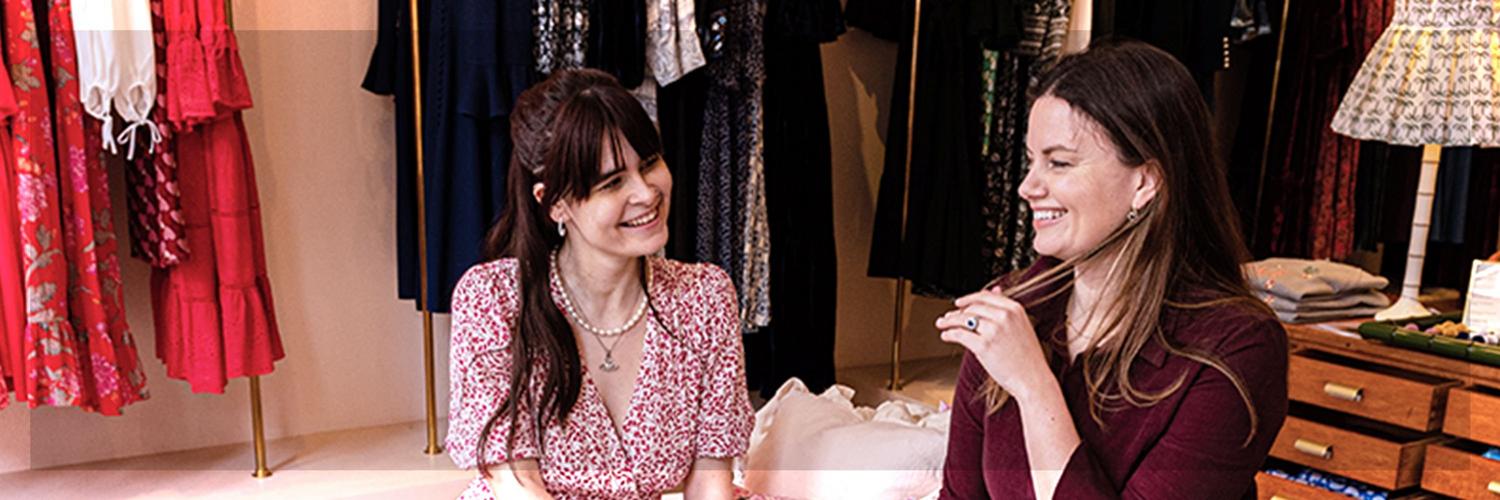
In My Shoes Beulah London
Fashion as a force for good: it's a belief that's propelled founders Natasha Rufus Isaacs and Lavinia Brennan since 2009. Having spent two months in Delhi, India working in a rehabilitation centre with women rescued from the sex trade, they knew providing viable, long-term employment could help break the cycle of poverty and exploitation. Compelled to act and inspired by the beauty of Indian fabrics and the artistry and craftsmanship of the east, they established Beulah - an ethical luxury womenswear brand.
To honour International Women's Day, we decided to take a closer look at the women behind Beulah - a brand that proudly #BreaksTheBias in more ways than one. We sat down with Natasha to talk about her story of entrepreneurship, the main challenges she's faced along the way, and the importance of having a truly sustainable business that empowers vulnerable women.
What inspired you to start Beulah?
Our story began in 2009 with a trip to Delhi, where we spent two months working in a rehabilitation centre teaching sewing skills to women who had been rescued from the sex trade. With this new skill came an opportunity to generate an income and build independence. It was here that we first understood the importance of providing sustainable employment to victims of trafficking, to enable them to break free from cycles of abuse, exploitation and poverty. And so, Beulah began.
What are some of the challenges you have faced being an impact fashion brand?
In all honesty, trying to match the skill sets of the impact projects we work with, with a luxury product has been a challenge. Working with impact projects takes more time, you have to be willing to invest a lot more energy. We currently work with a range of talented craftspeople from around the world who use astonishing skills to process raw materials and produce regionally distinctive dyes, weaves, prints and embroidery. The intricate and versatile pieces that make up our collections combine influences from east and west, telling the story of their makers. It is often a challenge; however, the result is always worth it.
What's been your greatest achievement as a female founder?
To keep going. And pick yourself back up. When we first started the business we were young and relatively naive (which is often the best way when you start!). Along the way we've made many mistakes, but we've also learnt so much. My biggest challenge as a female founder and entrepreneur has been juggling work with family; it's constant. My biggest achievement is having three beautiful girls and a thriving business, which I hope one day they can also be involved in.
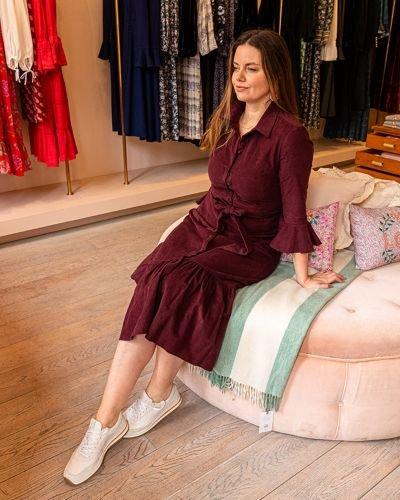
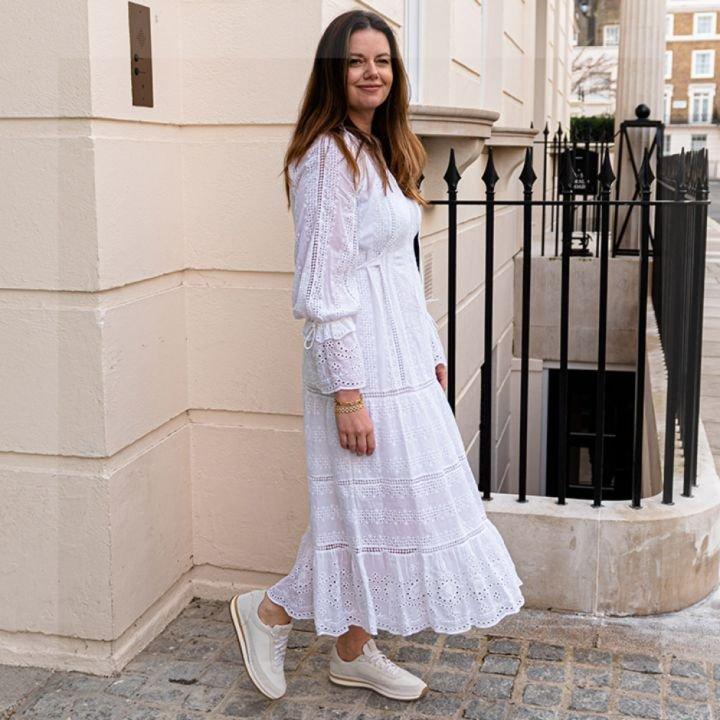
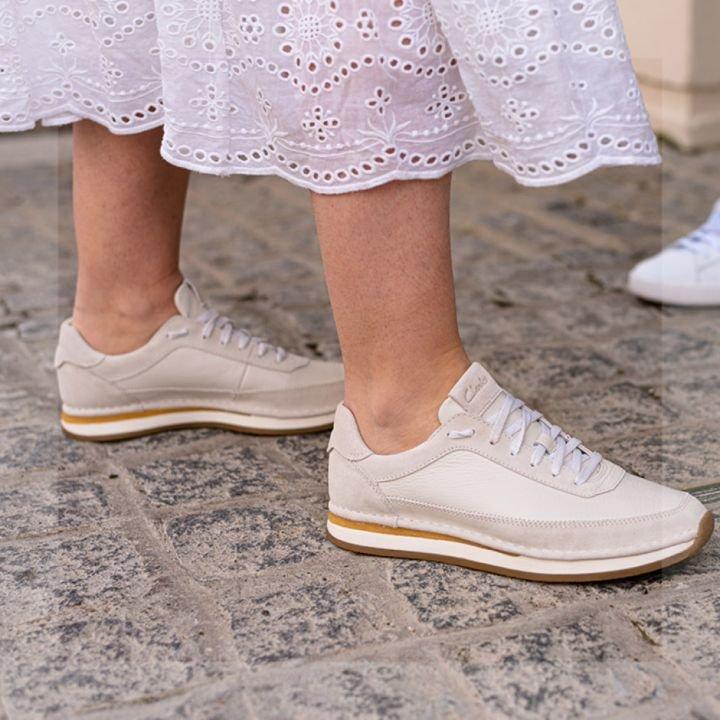
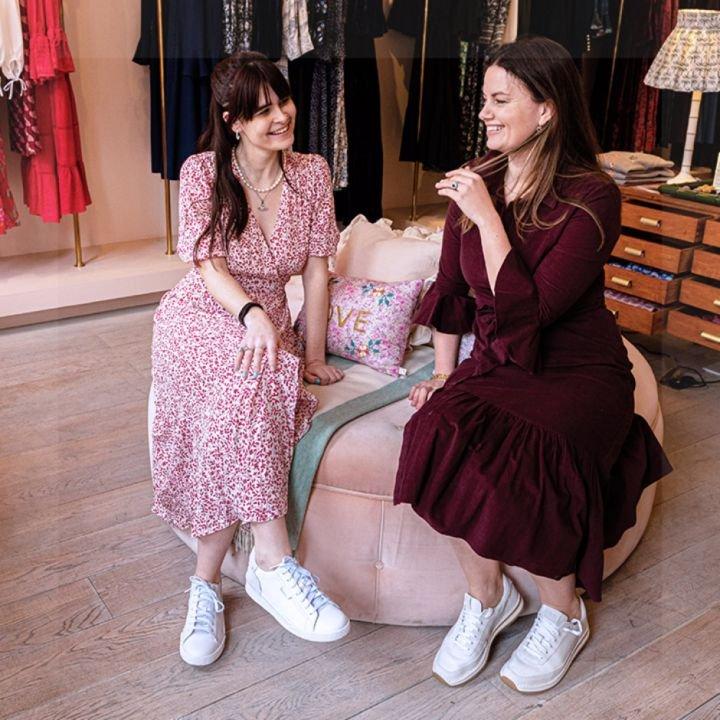
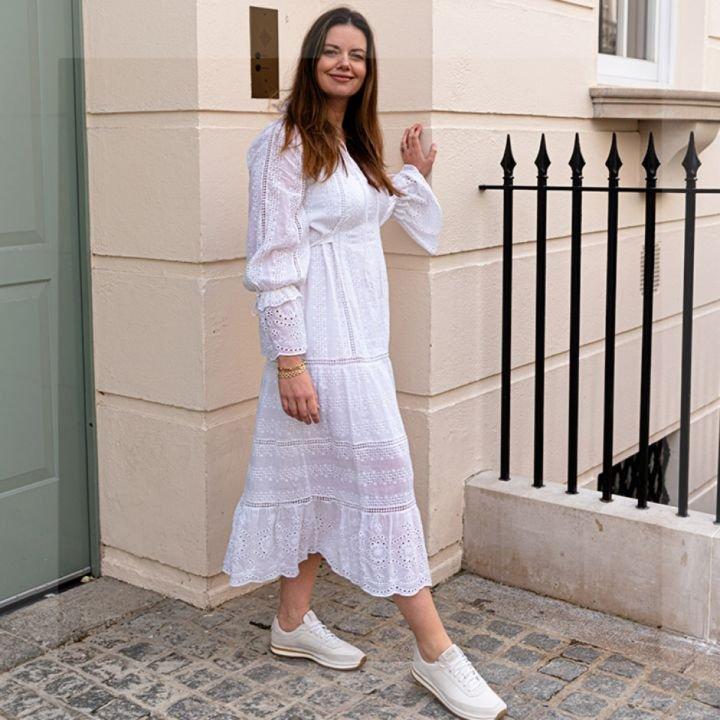
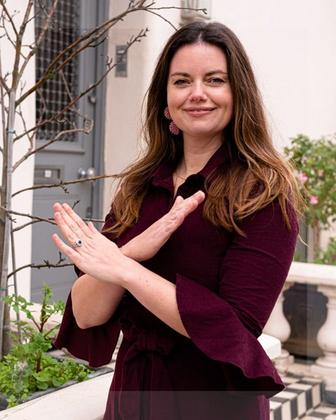
Who inspires you?
One of my best friends Julia Strachan. She rowed the Atlantic a few years ago for an anti-trafficking charity. She is always encouraging. She inspires me every day with her faith and positive attitude!
What piece of advice would you give to a woman at the start of her business journey?
Work hard, and always be true to your original vision. Don't compromise, ever!
Why are ethics and transparency so important within fashion?
We feel a great sense of responsibility to change what it means to be in the fashion industry and work alongside our partners and suppliers to address sustainability proactively. We're dedicated to building a business that empowers vulnerable groups, protects human rights and recognises that as stewards of the earth, we have a duty to protect the planet.
We work with NGOs, social enterprises, and fair-trade co-operatives, as well as small specialist manufacturers. They employ vulnerable communities to use regional artisanal techniques like hand embroidery, block printing and hand spinning in the production of our garments.
Our intention is to celebrate the skills of these craftspeople by providing a platform through which they can share their expertise and gain economic independence.
We work closely with our suppliers to source fabrics that are as conscientious as they are luxurious. All of our materials are chosen with intention and care; we use certified organic cotton along with staple fibres such as linen, which require very little water or fertiliser to grow. We focus on natural fibres which biodegrade much more quickly than manmade materials; when washed they pollute our waters far less than synthetic fabrics. Our design team is continually investigating new fabric options to keep pace with the best environmental practises.
We're finding more and more that our customer is wanting transparency in the supply chain and to understand how the garment has been made and by whom. It's so important for us to give this visibility, as it leads to trust and loyalty.
Trainers or heels?
Trainers. All day every day. I don't think I can remember the last time I wore heels!
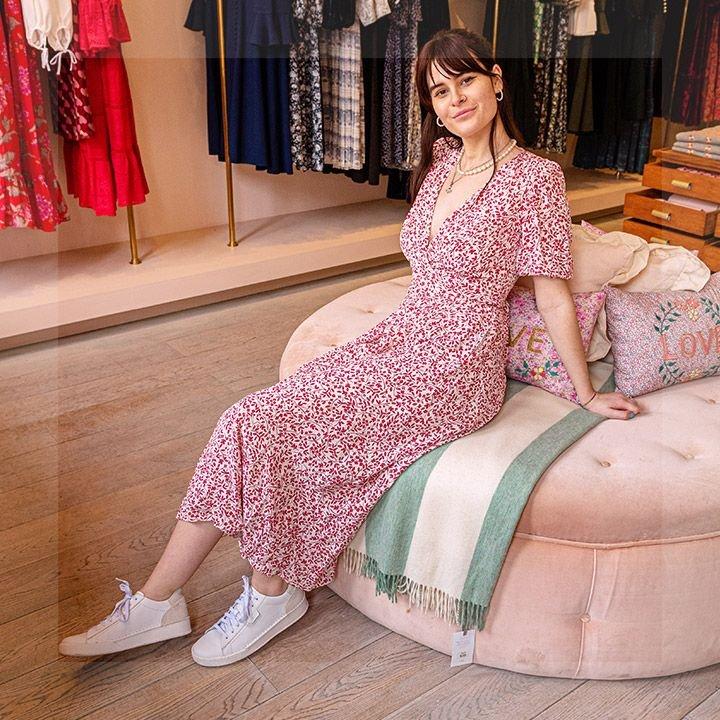
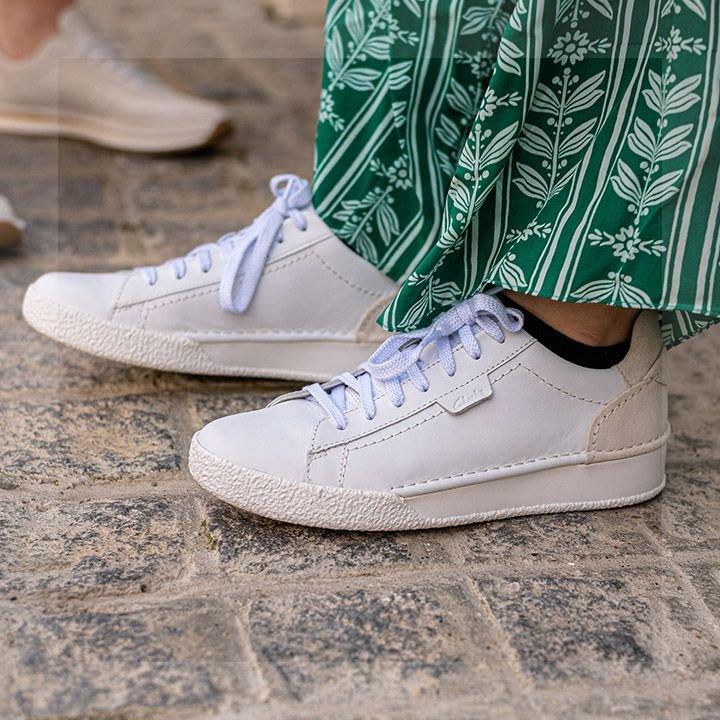
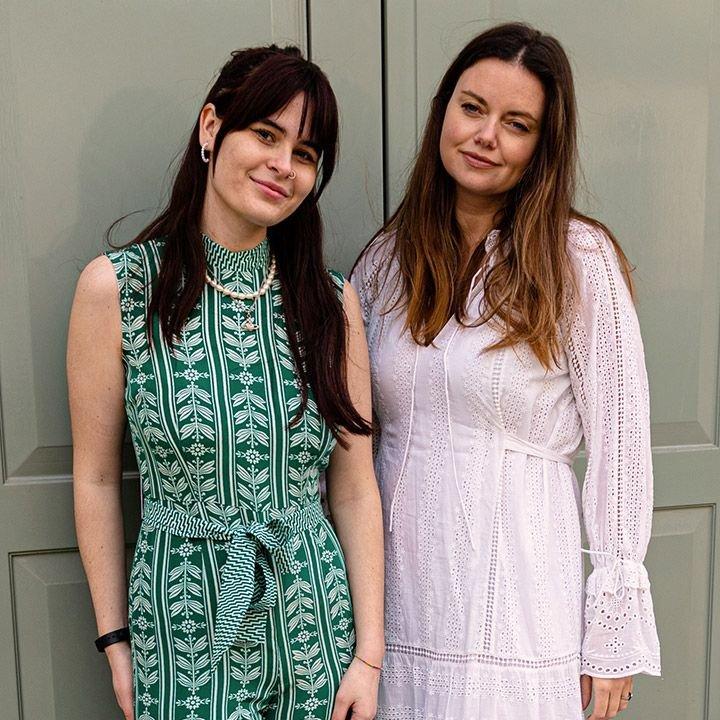
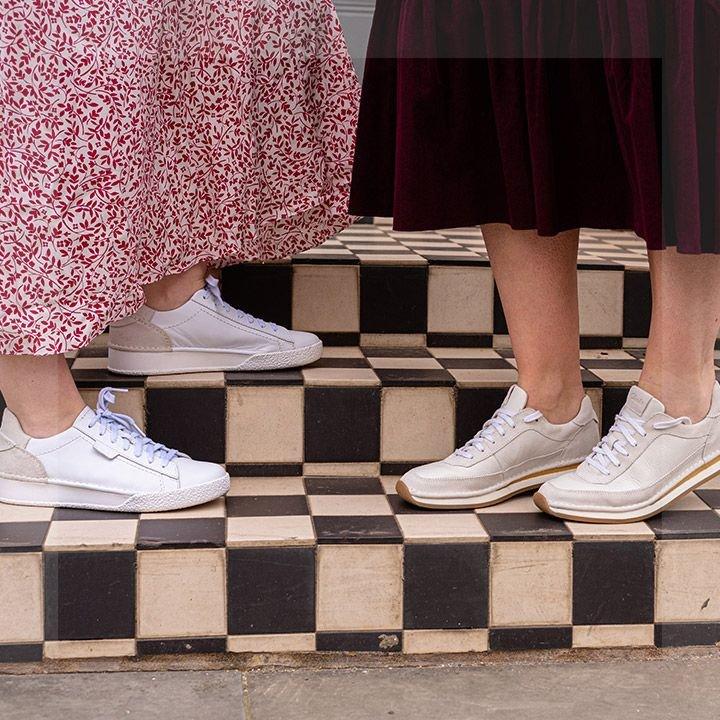
“My biggest achievement is having three beautiful girls and a thriving business, which I hope one day they can also be involved in.“
Published on: